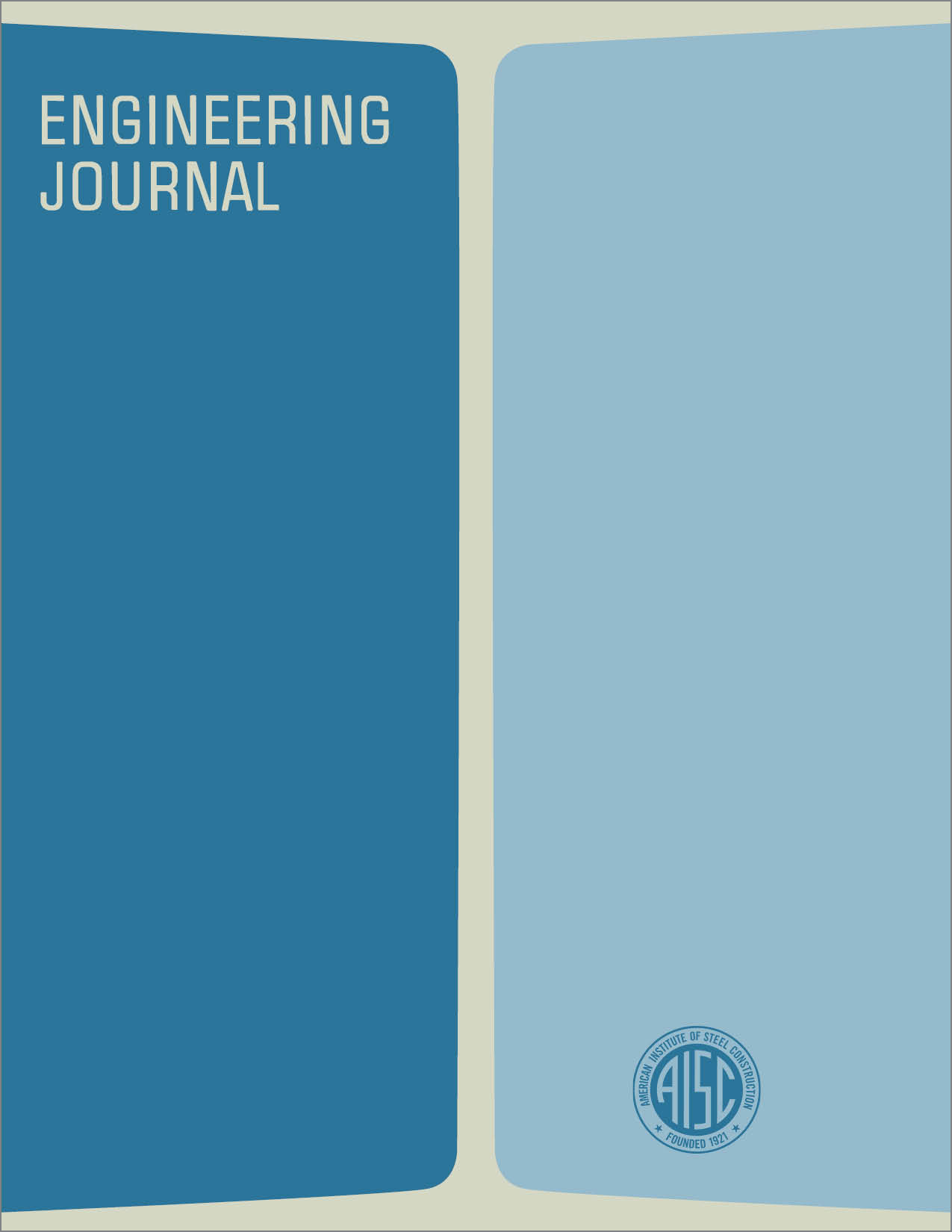End Plate Connections in Plastically Designed Structures
DOI:
https://doi.org/10.62913/engj.v1i1.3Abstract
A revolutionary improvement in design methods is resulting from the development of practical applications of the plastic strength theory of structural steel design. This could not be accomplished without the new design specifications reflecting the capabilities of these new theories, high tensile bolts and improved welding machines and techniques. Much has been said recently of the savings in tonnage per project in applying the plastic theory to the design of structures. However, theoretical economy, i.e., use of lighter sections, is not enough; the structural engineer must assure that the increased cost of intricate connections to develop the lighter members to their full potential does not offset any savings accrued solely by tonnage reduction. The new AISC Specification is the outcome of years of research and testing; its issuance has modified and liberalized structural design in steel. This new realistic approach to the true capacities of steel, properly designed, reflects appreciable savings in the cost of steel construction without lowering the safety requirements with which we are so familiar.

